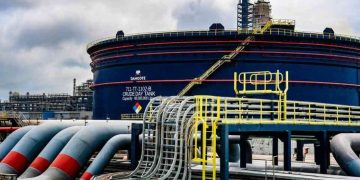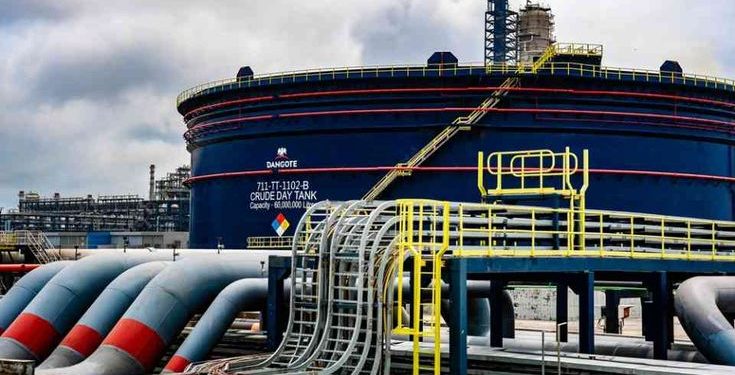Dangote Petroleum Refinery has further reduced its ex-depot price for liquefied petroleum gas, also known as cooking gas, from ₦810 per kilogram to ₦760 per kilogram. Industry observers say the price cut is aimed at stabilizing the market and easing the financial burden on millions of Nigerian households currently struggling with the high cost of gas.
This adjustment comes at a time when the country is facing a severe shortage of cooking gas, leading to widespread scarcity and soaring retail prices. Market surveys across Lagos, Abuja, and other major cities show that the price of cooking gas has surged far beyond what most families can afford. In many parts of the country, consumers now pay between ₦1,600 and ₦1,800 per kilogram, while prices in some areas have reached as high as ₦2,800 to ₦3,200 per kilogram. A standard 12.5-kilogram cylinder, which sold for around ₦10,000 earlier this year, now costs between ₦20,000 and ₦26,000, depending on location and vendor.
Worsening Shortage and Supply Bottlenecks
The recent scarcity has been attributed to multiple factors, including temporary disruptions at major depots, delayed vessel arrivals, and the ripple effects of industrial actions. Industry insiders point to the brief strike by refinery and depot workers in late September, which slowed down loading operations and caused supply backlogs across the country.
Logistics challenges, high transportation costs, and limited storage capacity have further compounded the problem. Some marketers claim they have been unable to access sufficient supply from terminals due to congestion and payment bottlenecks. The resulting supply gap has given rise to speculative pricing by middlemen, widening the disparity between depot and retail prices.
Impact on Households and Businesses
The effect of the shortage has been deeply felt by ordinary Nigerians. Households have reported long queues at filling stations, with many residents unable to refill their cylinders for days. Street food vendors, caterers, and small businesses that depend on cooking gas are being forced to reduce operations or switch temporarily to alternatives such as charcoal and firewood.
Several residents in Lagos and Abuja described the situation as “unbearable,” saying the sudden rise in gas prices has made daily cooking a struggle. “I used to buy 12.5 kilograms for ₦9,500 just a few months ago, but now it costs ₦25,000 in my area,” said a Lagos resident. “It’s becoming impossible for the average person to afford gas.”
Dangote’s Market Strategy and Impact
Industry analysts believe Dangote’s decision to reduce its ex-depot price is a calculated move to strengthen its market position and restore order to the LPG sector. By offering the lowest ex-depot price in the country, Dangote aims to force other depots and distributors to review their prices downward.
Analysts also note that the price cut could serve as a form of market intervention to curb excessive profiteering by intermediaries. However, they caution that the real impact will depend on how quickly retailers pass the lower cost to consumers.
Government and Industry Response
The Nigerian Association of Liquefied Petroleum Gas Marketers (NALPGAM) and other industry stakeholders have acknowledged the refinery’s price reduction as a welcome relief but urged the government to address the underlying structural issues that cause recurrent shortages.
Officials from the Nigerian National Petroleum Company Limited (NNPCL) have assured the public that measures are being taken to normalize supply in the coming days. The government has also reiterated its commitment to expanding local refining and storage capacity to reduce dependence on imported LPG and minimize price volatility.
Outlook
If the Dangote Refinery continues to push more volume into the market at competitive prices, experts predict that the current scarcity may ease gradually over the coming weeks. However, without improved logistics, storage infrastructure, and consistent production, price stability may remain elusive.
For now, consumers are cautiously hopeful that the refinery’s price cut will translate into tangible relief at retail outlets. Until supply catches up with demand, however, the struggle for affordable cooking gas is likely to persist across Nigerian households.

























































